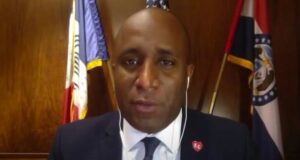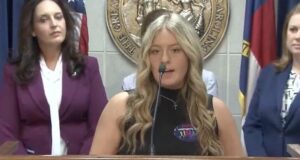Countless working poor and unemployed find themselves choosing between necessities of life and getting a “payday” loan.
“Our families are hurting”, said Dr. Seft Hunter, Executive Director of Communities

Dr. Seft Hunter
Creating Opportunity (CCO) a local organization working to stop bad actors in the business from preying on the most vulnerable. “These families need access to credit but at almost two thousand percent interests, this is deepening the burden of being poor.”
Unknown to many, in Missouri it’s legal for payday lenders to charge individuals almost 2,000 percent on small-dollar loans. These are low-income families who end up with a routine emergency such as car repair or increased utility expenses but don’t have the savings to cover these. Out of an act of desperation, they turn to “payday” lenders for assistance. The horror that follows includes years of being trapped in a cycle of debt, overdraft bank fees for insufficient funds and the stress of trying to get out of this cycle.
In Kansas City’s metro, these lenders are located all across the city with most concentrating in the midtown area. But you’ll also find them in wealthy communities like Lee’s Summit and Overland Park. They go by names like Speedy Cash, Advance America, and Lend Nation. Late night television commercials make the loans look easy to get–and repay. You’ve probably heard the catchy phrase, “Love that Speedy Cash.”
These businesses operate from a similar model and often prey on the poor who are facing economic hardship. With no where else to turn, many people are enticed into a loan which ends up getting renewed week after week and then results in the exorbitant interest and protracted indebtedness. A local resident can literally borrow $500 that over a few years compound in them owing thousands.
For the past 10 or more years, CCO has been calling on the state and federal government to change these laws. Metro Voice has reported on the issue extensively in the past.
The state legislature on both sides of the political aisle are recipients of extensive donations and gifts from these lenders and have been reluctant to pass laws ending this system. In 2015, CCO hosted the Consumer Financial Protection Bureau (CFPB) in Kansas City. The bureau proliferated a set of strong rules that were put under review by the Trump administration.
Those rules governing the payday lending industry, finalized during the last weeks of an Obama-era appointee who led the Consumer Financial Protection Bureau, will remain in place for now after Congress allowed a deadline to overrule them pass without action.
The cornerstone of the rules is a requirement that payday lenders must determine, before giving a loan, whether a borrower can afford to repay it in full, with interest, within 30 days. The rules would have also capped the number of loans a person could take out in a certain period of time.
If allowed to go into effect, the rule would have had a substantial negative impact on the payday lending industry, where annual interest rates on loans can exceed 300 percent.
Even with the protections now extended by the Republican Congress, CCO along with a diverse group of public health, faith and community leaders are turning to local government to act to protect local families. These leaders are calling on elected officials to end the practice “payday” lenders concentrating in low-income communities, support improved borrower education and alternative programs that provide affordable credit options to families.
–By Dwight Widaman and news services
 Metro Voice News Celebrating Faith, Family & Community
Metro Voice News Celebrating Faith, Family & Community 







